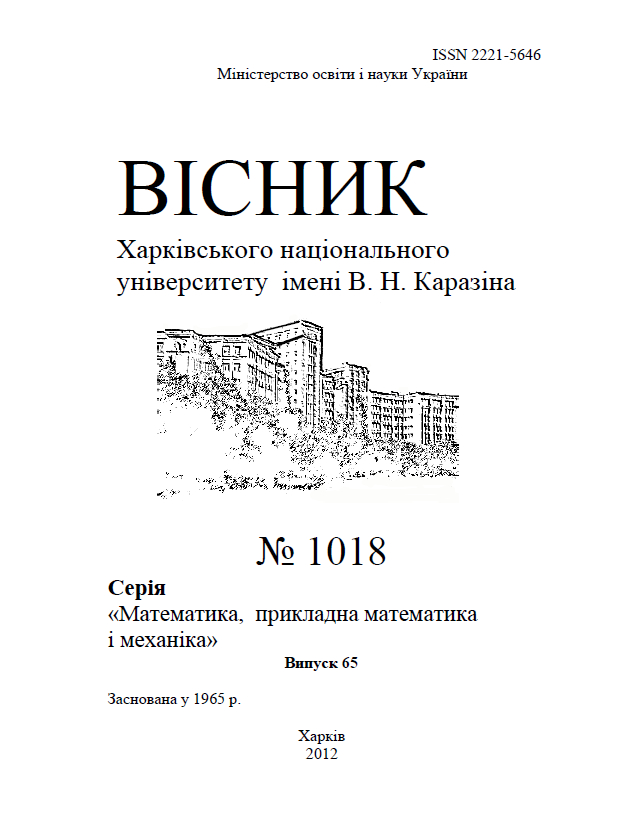Identification of distributed parameter systems, described by the equation of neutron transport with anisotropic time-dependent collision integral
Abstract
In the paper we study the problem of identification of a nonstationary many-dimensional linear Boltzmann equation with a nonsingular generator of neutrons. We identify an equation by the given initial flows of neutrons and the observed final flows of neutrons. We ascertain the one-to-one correspondence between density of the generator of neutrons and the observation which associates inicial increment of neutrons to the final flow of neutrons.
Downloads
References
Рид М., Саймон Б. Методы современной математической физики. Т. 3 : Теория рассеяния. М. : Мир, 1982. 443с.
Лионс Ж.-Л. Оптимальное управление системами, описываемыми уравнениями с частными производными. М. : Мир, 1972. 414с.
Козаков А.Я. Обратная задача линейной теории переноса излучения. / Журнал вычислительной математики и математической физики. 1984. Т. 24, № 2. С.261-271.
Аниконов Д.С. Об одной обратной задаче для уравнения переноса излучения. / Сибирский математический журнал. 1975. Т. 16, вып. 3. С. 432-439.
Аниконов Д.С. Многомерные обратные задачи для уравнения переноса. / Дифференциальные уравнения. 1984. Т. 20, № 5. С. 817-824.
The copyright holder is the author.
Authors who publish with this journal agree to the following terms:
1. Authors retain copyright and grant the journal right of first publication with the work simultaneously licensed under a Creative Commons Attribution License that allows others to share the work with an acknowledgement of the work's authorship and initial publication in this journal. (Attribution-Noncommercial-No Derivative Works licence).
2. Authors are able to enter into separate, additional contractual arrangements for the non-exclusive distribution of the journal's published version of the work (e.g., post it to an institutional repository or publish it in a book), with an acknowledgement of its initial publication in this journal.
3. Authors are permitted and encouraged to post their work online (e.g., in institutional repositories or on their website) prior to and during the submission process, as it can lead to productive exchanges, as well as earlier and greater citation of published work (see The Effect of Open Access).




